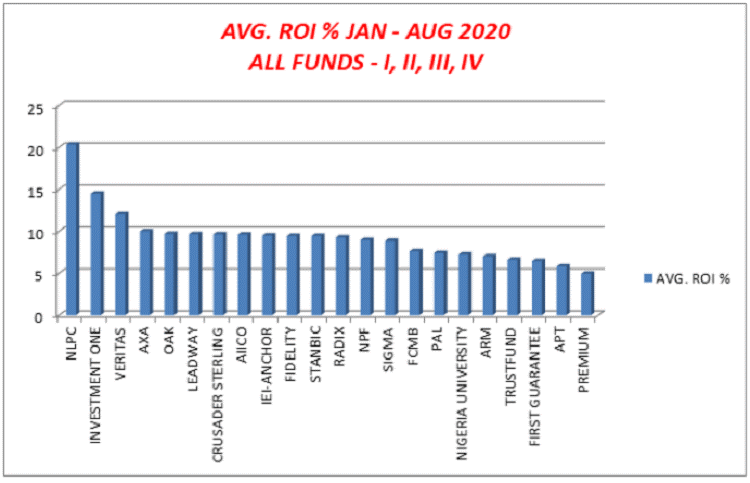Apart from the technical difficulties envisaged in the plan by governors to borrow ₦17 trillion from the country’s pension fund, the greatest obstacle against them perhaps is their poor reputation to spend money wisely and frugally.
It is hardly surprising therefore that pensioners, as well as concerned Nigerians and groups, have almost unanimously expressed opposition to the plan. In the circumstance, the governors should look elsewhere to fund infrastructure and desist from subjecting pension funds to a risk that can only jeopardise a fairly stable existing arrangement for pensioners.
For one thing, there is no assurance that the entire pension fund is up to the ₦17 trillion sought by the governors.
For another, most state governments, having fallen short of fulfilling their statutory obligations under the Nigerian Pension Act (they are not up to date with pension remittances), are technically not qualified to leverage on the fund.
Moreover, the pension law does not appear to have provision for the direct access desired by the governors. Basically, it is laughable that a government that could not successfully manage its oil revenue and humongous domestic and foreign debts is now dreaming of accessing the pension funds contributed by toiling workers and their employers.
Globally, the use of pension funds to support economic development such as the financing of infrastructure under some well structured terms have been found acceptable, particularly in societies where contracts are enforced and the judicial system works fairly for all, with appropriate sanctions applied in the event of default.
Hence, ordinarily, pension funds should be available for borrowing by the various tiers of government provided the investment guidelines of the National Pensions Commission are strictly adhered with.
However, the common reality with Nigerian governments at both federal and state levels is that public finances are not well-managed. There is the risk that poor people’s pension funds could be exposed to the vagaries of unstable governance environment with devastating consequences for the contributors of the funds. The passing into law of the Pension Reform Act in 2004 was meant to address some of the issues of uncertainties in the administration of the pension funds.
The Pension Reform Act in 2004, at inception, was heralded with lots of optimism by many stakeholders at the time particularly with the multifarious problems that had bedevilled the old unfunded defined benefit scheme for public servants.
The law thus came as a positive remedy to the sorry state of retired workers who littered the pension verification centres across the country then, with some of them dying in the process. The success of the scheme has been largely accentuated by the fact that it is contributory and thus commits both employer and employee to put aside certain proportions of earnings for pension purposes.
The checks and balances introduced with the establishment of the National Pensions Commission, as regulator, the Pension Fund Administrators, PFAs as managers, Pension Fund Custodians, PFCs, and the employers and most importantly the employees, all ensure some measure of safety of the funds.
Given this background, the desire by the governors to borrow from the funds introduces a great risk to the funds’ management. First, the funds do not belong to any of the tiers of government, and the state governors, nor has the Central Bank of Nigeria the power to borrow from it except in line with the investment guidelines clearly stated in the management of the pension assets.
That the pension assets are increasing in size does not mean the government should look in that direction, particularly when they have not been prudent with their other sources of revenue. Incidentally, many state governments do not even subscribe to the scheme.
Some others deduct money from their employees but do not remit to the PFAs through the Custodians, which is tantamount to daylight robbery.
Stakeholders against the proposed borrowing have also raised a number of concerns. For example, in the event of default by any of the states that borrows from the fund, how would the funds be recovered? Is it at source from the Federation Account? What if the country becomes restructured and fiscal federalism is allowed to prevail, will that not affect the likelihood of prepayment as at when due? These and some other considerations support the need for borrowing from the funds to be discouraged.
Governors must be pragmatic with their proposal. Must the recurring trend of mismanagement of public resources now be extended to the contributions of poor and struggling salary earners? There is the need to safeguard this system and provide a guarantee to the generality of toiling employees who make contributions to the scheme, that whenever it comes to withdrawal, stories of misappropriation would not be told. This is very critical, particularly in a society where poverty has become so prevalent.
The key is effective regulation by the National Pension Commission. This would place sufficient responsibilities on the various operators in the sector: from the employers, to ensure prompt remittance; to the PFAs, to ensure internal control in their operations; and the PFCs to guarantee the safety of pension funds with them.
Overall, employees should always keep an eye on their pension investments with regular interaction with their PFAs and with readiness to blow the whistle whenever they discover anything untoward in the entire process.
Source: The Guardian




